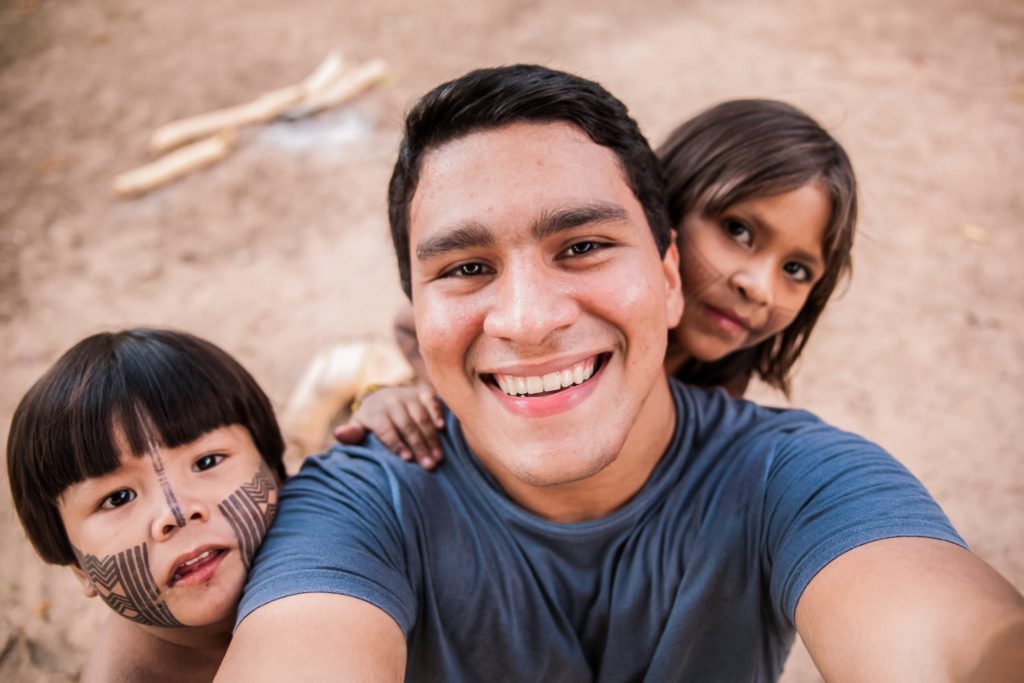Why Helping Others Helps Yourself

I’m not the kind of person that can recite Bible verses from any testament, old or new. But something that has long resonated is the concept that it is better to give than receive. Personally, I think people tend to be better off when they do plenty of giving and receiving.
But if we just focus on the concept of giving, what you might not realize is that being there for another person or an organization is going to do wonders for your personal growth, well-being, and ability to overcome obstacles. Bottom-line, helping others is a great way to also help yourself.
“It’s a very well-established phenomenon that helping helps the helper,” noted Ludmila N. Praslova, Ph.D., SHRM-SCP, Professor and Director of Research, Graduate Organizational Psychology at Vanguard University of Southern California. “Multiple studies have shown that it improves mood, increases our sense of agency, and helps us thrive. When you’re helping someone, not only you are in control of your reality, but you are helping to change someone else’s.”
Gaining Perspective
Anda Goseco, ICF-PCC, a global executive coach based in the Philippines, says it is a matter of perspective. “When you reach out to others, it puts things in perspective,” she noted. “You get to see that your problem is not as big as you thought it would be or recognize all the similarities you have with the situations of others.”
Spencer Koeneman certainly agrees with that sentiment. When he was 12 years old, his parents sent him to a church summer camp at Win Our World Urban Ministry in Knoxville, Tennessee. That week-long experience volunteering to help the homeless proved to be transformative.
He recounts an afternoon distributing cups of water to homeless people congregating on a local bridge in the middle of summer. “It was sweltering,” said Koeneman. “Everyone thanked us, and it made me realize that if a cup of water means that much to someone, what else can I do? It’s humbling and a good way to put things in perspective.”
Koeneman asked organizers if he could do more. Soon he started spending three weeks at the camp each summer, eventually leading groups of teens volunteering at homeless shelters and other non-profit organizations.
That desire to help others flourished. An avid fencer who traveled nationwide to tournaments, Koeneman began providing complimentary lessons to kids who couldn’t afford it while mentoring them to learn skills like CPR. The recent college graduate also volunteered as a referee at the Special Olympics while attending the University of South Carolina.
Helping others has helped Koeneman grow in many ways. It broadened his perspective about people and the world overall. He became more patient and open-minded.
“I grew up in an upper middle class household and never had to worry about financials,” he explained. “To volunteer at a transitional housing shelter and have a resident thank a bunch of teens for helping him have a place to live for another month is so impactful. You gain the perspective of what it is like for other people. I realized that you never know what is going on in the background and sometimes people get dealt a bad hand.”
Giving back has also helped Koeneman realize the value of trusting his instincts and not relying on immediate gratification. “When you are volunteering, there isn’t that much instant feedback,” he added. “You just have to accept that what you’ve done has helped without ever seeing its impact. You’ve done the best that you can, and you have to move on.”
Positive Reinforcement
The need for perspective intensified during the COVID-19 health crisis, when it became easy to feel isolated and mired in your own situation. “It was really all about that one big pause in our lives, being able to gain perspective that really changes how you wake up every single day,” said Goseco. “That connection of helping people brings out the human side of you. When you give, you are helping others and yourself as it reinforces your capacity and internal strength.”
Giving back proved to be a key survival mechanism for many individuals during the pandemic. “People gave free workshops and courses, taking care of others you knew who were sick,” she added. “It created a feeling also of oneness, that you’re not alone.”
Enhance Your Well-Being
If you want to enhance your well-being, Goseco noted that it is important to focus on more than just yourself. She believes that giving back is strongly linked to an individual’s purpose in life.
“When you only write your purpose for yourself, it will keep you happy for a limited time,” she explained. “But if your purpose goes with who you are, how you can contribute to the world and help others, that’s going to really make you happy and feel fulfilled. Being able to help one another and feel connected improves our overall wellbeing.”
Looking to do more to help others? Here are 3 ways to make giving back a meaningful experience:
Practice acts of kindness.
Being there for others does not mean you have to dramatically change your lifestyle or habits. You don’t have to go big or go home. Reaching out with acts of kindness can make a noticeable impact. Like picking up groceries or retrieving a trash can from the curb for a neighbor who lacks mobility. Spending an hour tutoring a child that needs help. Donating blood to the Red Cross. Teaching a co-worker to upgrade their presentation skills, bolstering their confidence and job performance in the process. When my father died in 2001, I came back from the funeral to find close friends had cleaned my apartment, restocked the fridge, and even changed the sheets on my bed. That burst of loving support helped me when I needed it the most.
“It could be something small, even with your family or friends,” said Goseco. “I think the keyword there is to be intentional, every single day. Actively thinking of ways to just be helpful makes you treat people with more kindness.”
Choose a meaningful cause.
Ready to make an on-going commitment to volunteer work? Select an organization near and dear to your heart makes that experience more meaningful. I know people who pursued acts of service to help their college applications or joined a non-profit Board to advance their career and business networking. There’s nothing wrong with that, as you are still putting good into the world. But if you are going to invest your time and passion in something on an on-going basis, focusing on a cause that resonates with you deeply is more likely to lift your spirits and promote a strong sense of accomplishment.
Maintain boundaries.
Giving back is great, as long as you don’t do so at the expense of what matters to you. It can be tempting to say yes to every opportunity to help. A few years after graduating college, I volunteered at a Ronald McDonald house for kids being treated at a children’s hospital. A friend who was a brain cancer survivor asked me to join him in that endeavor, since the same facility helped him as a child. Empathetic to his story, I went along and did enjoy helping a couple of times. But then it became too much with my job and other commitments, especially since I was trying to help with a cause that was important to another person and not me personally. I got stretched too thin in the process and burnt out.
Sure, I’ve been involved with numerous causes since on a project basis, particularly in my corporate roles where overseeing social responsibility is part of the job description. But my giving groove has been acts of mentorship and I’ve given advice to hundreds of people along the way in that manner.
My advice is to determine how you want to be of service and the best parameters for bringing that to life. Saying no or delaying a non-urgent request for help to honor plans with family or friends is healthy and in your best interests.
How have you given back to others? What did that experience bring into your life?
